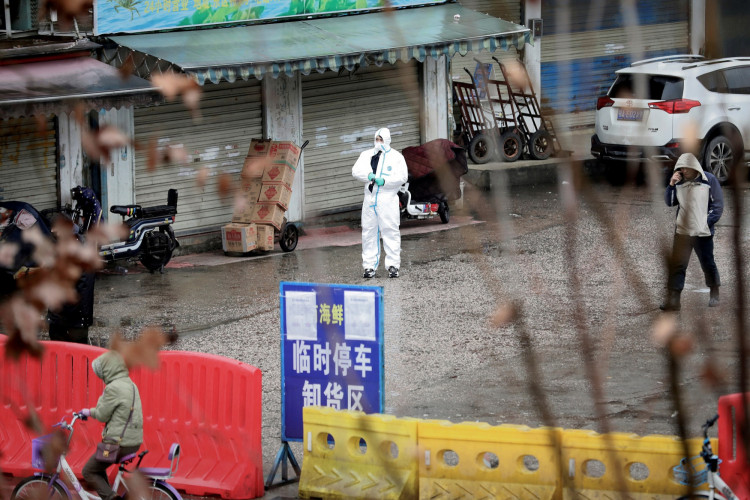Chinese authorities identified a case of cholera in Wuhan, the core city where the COVID-19 outbreak began before spreading globally, this week.
State media admitted that the episode has caused public anxiety in a community that is still struggling with the COVID epidemic.
China's official news agency Xinhua reported the news on the homepage of its website, citing a public notification issued by the Wuchang district government's center for disease management.
Wuchang is a district in the city of Wuhan with slightly more than 1 million population and is home to Wuhan University, where the case was recorded.
As of Tuesday morning local time, the news item is no longer shown on Xinhua's homepage, nor can it be accessed in the Local News section of the website, where it previously resided.
Wuhan University revealed that a graduate student with a history of gastrointestinal illness was taken to the university hospital on July 8 with fever, vomiting, and diarrhea.
According to the institution, the student has been transported twice to higher-level hospitals and is currently in quarantine.
The dormitory where the student resided and the laboratory where the student worked were both closed down as of the evening of July 9, according to the university.
Three close contacts have been isolated, including two roommates and a third person who dined with the student previous to his hospitalization.
Between the evening of July 9 and the early morning of July 10, 254 students who resided in the same dorm, three dorm building managers, and 15 merchants were evaluated.
The university said that potentially impacted locations have been temporarily isolated, and necessary workers have been administered preventative medication.
The university has also collected "environmental" samples from the dormitory's public areas, dormitory rooms, restrooms, waste disposal channels, and the student's workplace. Additionally, the regions have been disinfected.
Hospital personnel who had contact with the student have been tested.
Between July 1 and July 10, the university's hospital treated an additional 19 instances of diarrhea and cholera tests were being conducted.
The university announced on Monday that, as of 10 p.m. local time on July 10, none of the O1 or O138 strains verified in the student had been detected in 264 closely watched persons.
According to the World Health Organization, the only two types of cholera bacterium that produce epidemics are O1 and O138.






